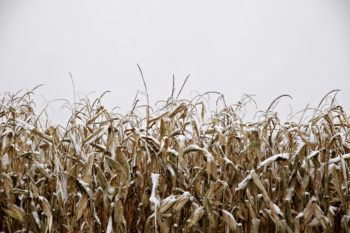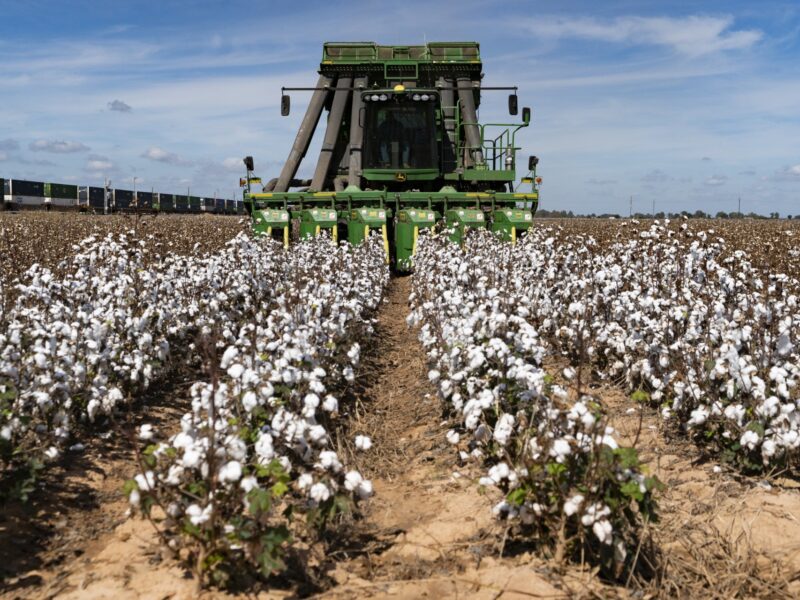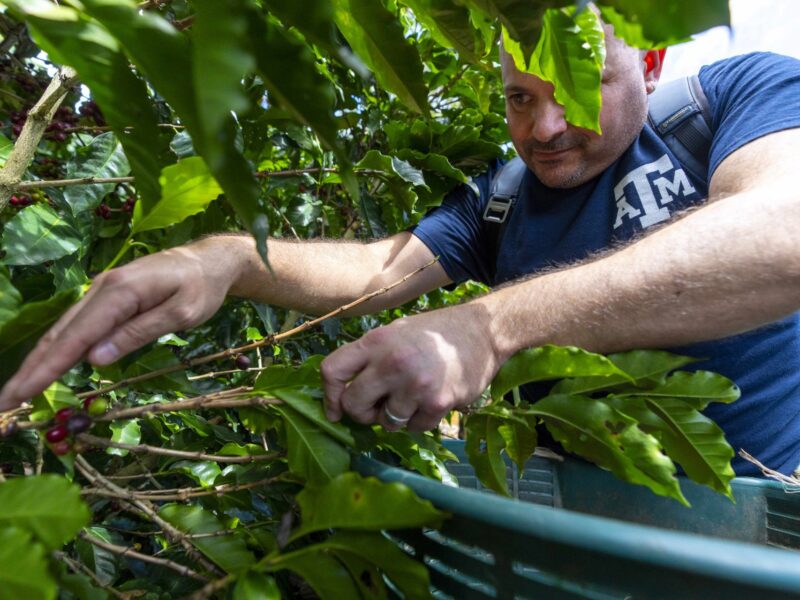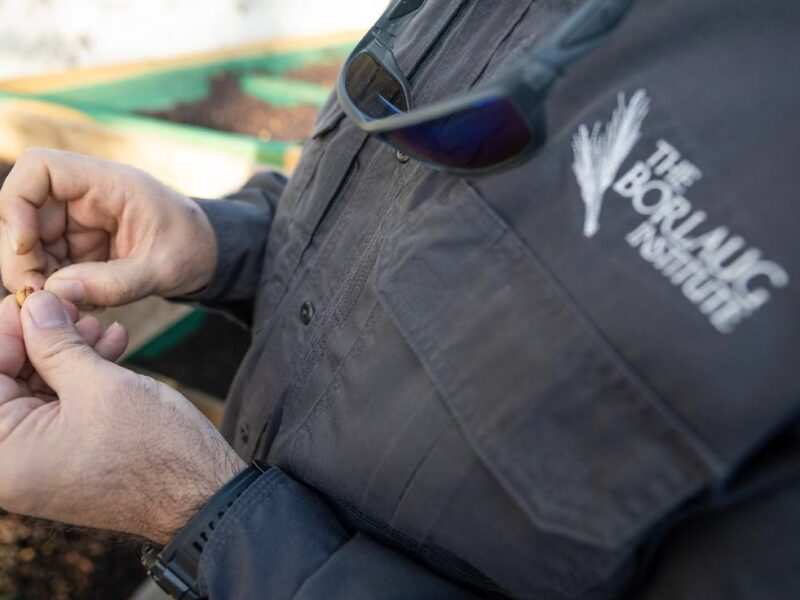Arctic Conditions Deliver Frigid Blow To Texas Agriculture

Arctic weather conditions that blanketed the state with snow, ice and frigid temperatures is damaging Texas agriculture crops in a historic way, according to Texas A&M AgriLife Extension Service experts.
The extent of the damage to Texas agriculture won’t be fully realized for weeks, but farmers, their crops and animals are facing tough conditions.
Juan Anciso, AgriLife Extension horticulturist, Weslaco, said the winter conditions rival a historic hit to Texas farmers in December 1989. There were notable freezes that damaged South Texas crops in 2004 and 2011, and a few in prior decades going back to the 1950s, but December 1989 caused severe damage to Texas winter crops, including citrus.
“We’ll know if it ranks with ’89 in a few weeks, but temperatures are well below the threshold for crops and for long periods,” he said. “That’s not a good combination for growers.”
Anciso said the temperature low in Weslaco was 21 degrees. Some crops can tolerate temperatures around 26 degrees for four to five hours, but temperatures were below that for 10-12 hours. A second night of temperatures below the threshold was in the forecast.
The temperatures will affect citrus and cold-season vegetables like leafy greens, onions, beets, parsley and watermelons, Anciso said.
Oranges were frozen solid, and some grapefruits were nearly frozen through, he said.
The good news is that around 80% of the orange crop and two-thirds of the grapefruit crop were harvested before the winter storm, he said. The crop losses will be significant for producers, but the lasting damage could be tree losses.
“A lot of citrus guys are running their sprinklers to insulate their trees,” Anciso said. “They can take the death of limbs up to one inch in diameter, but you get into losing four-inch limbs, you’re effectively crowning the tree. That’s not good.”
Some warm-season crops like potatoes and watermelons and early planted corn and sorghum will also be affected, he said.
Watermelons were being started in high tunnels, which mimic greenhouse conditions, but Anciso said those structures do not provide protection from severe cold. Potatoes could resprout, but yields will be affected. Minimal acres of corn and sorghum have been planted in South Texas, but those acres will require replanting.
Arctic Front Hits Winter Garden
Texas’ fruit tree and vine crops could also face notable losses.
Larry Stein, AgriLife Extension horticulturist, Uvalde, said temperatures hadn’t reached 1989 levels yet, but that it was 8-10 degrees Monday night in the Winter Garden area with f0ur to six inches of snowfall on the ground. The temperatures likely mean losses for crops like peaches, strawberries, wine grapes and berries.
Fruit trees and grapevines that had emerged from dormancy would be susceptible to damage, and any active buds or fruit are likely lost, he said.
“Peach trees that had started budding, those buds are going to be toast at 15 degrees,” he said. “Any active growth could be problematic. We could see temperatures pop the wood. We may not see the damage this spring, but eventually those limbs will die back where the tissue is damaged.”
Strawberries are a winter-hardy plant that can take temperatures well below freezing, but the fruit and buds on the plant at freezing will be lost, he said. It will take those plants some time in warmer daytime temperatures to bud again, and about three weeks before fruit is ready to harvest.
“Producers were harvesting all the reds and slightly turned fruit they could,” he said. “We are hopeful that most of the plants will survive, but you’ve lost all the flowers and fruit for one harvest.”
Stein said snow may help insulate strawberry plants, but ice will not insulate plants and trees unless water in continuously applied to prevent freezing. Active buds will be lost, and limbs and vines actively growing will be susceptible.
Snow could also help insulate spinach, but the damage to leaves will only be known in the coming weeks as snow melts and temperatures promote growth, he said. The crop could face freeze burn to leaves and blemishes from sleet pellets, which detracts from the marketability due to aesthetic standards at grocery stores.
“I don’t ever remember a weather winter advisory that covered the whole state,” Stein said. “The good news is that we haven’t gone beyond 1989, but the reality is there will be damages, and it will be a few weeks before we assess where this winter storm ranks.”
This article by Adam Russell originally appeared on AgriLife Today.





